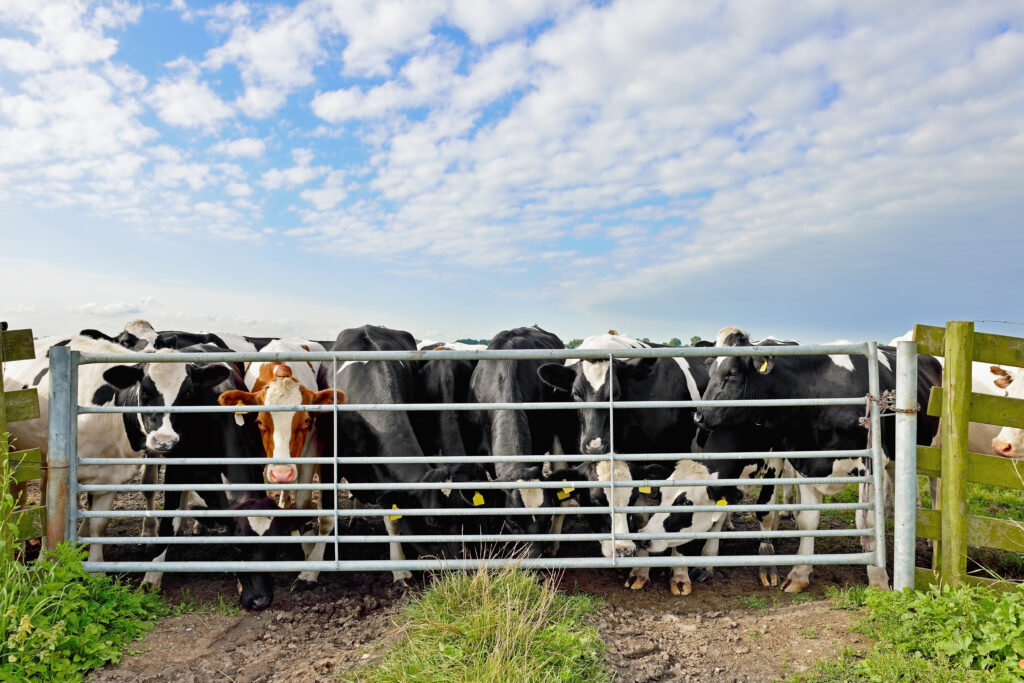
bump gate img4 5 1.jpg
Farm gates are essential to farmers for the simple, yet extremely vital, reason that they keep predators out while ensuring livestock stay in and are safe. There are a lot of factors that influence the kind of gate you’ll get, some of which include convenience, affordability, durability, and aesthetic appeal.
Both steel and aluminum excel in those parameters, which is why they are among the most popular choices for farm gates, but is there an outright favorite? That’s the question we are setting out to answer today as we take a look at the good and bad of each.
Why an aluminum gate proves better than Steel:
1) It doesn’t rust
Steel rusts due to the presence of iron in its composition. When continually exposed to oxygen and water, the surface of the gate gradually becomes pale and brown, and it loses its aesthetic value.
Even galvanized steel isn’t completely immune from rusting, as the paint will wear off (especially around the joints) with time due to the effect of weather extremities, thereby only delaying the inevitable. You’ll have no such worries with aluminum.
It is naturally resistant thanks to the protective layer of aluminum oxide that forms around it when it interacts with oxygen and water. This layer shields the insides while also rendering corrosive elements inert, thereby ensuring the gate retains its visual appeal for years.
2) Less maintenance
Since it does splinter, crack, rot, or rust, an aluminum farm gate requires little to no maintenance work. That saves you both time and money. Steel gates also don’t have too much work save for the periodic painting- particularly necessary in cold climates plagued by snow and ice- which attracts labor and material expenses.
3) Aluminum is lighter
Steel is about two and a half times denser than aluminum, so it makes for a more massive gate that requires some effort to shut and open. The opposite is the case for the latter, which is light and malleable.
Where steel excels:
1) It’s cheaper
If you don’t want to spend too much money on a gate, a steel type is ideal for its affordability, although galvanized steel gates have a heftier price tag. On the other hand, aluminum is more costly due to the expensive nature of the materials implored in making it.
However, if you look at things from a long-term perspective, you could also argue that an aluminum gate provides excellent value for money given its longevity.
2) Steel farm gates are stronger
Aluminum is a lot more malleable than steel, and while that makes it an industrial favorite, this proves a weakness in a farm setting with bulls and other power livestock. A steel gate is more robust, which is also an important aspect to consider if you’d like to incorporate a bump gate opener. It doesn’t bend, deform or wrap due to force quite as easily aluminum. However, via the aid of alloys, the tensile strength of aluminum gates can be improved.
3) Higher fatigue resistance
Due to its better strength, steel farm gates are perfect for a busy setting inflicting constant punishment. Aluminum can hold its own quite well too, but its tolerance levels aren’t as impressive.
So what will it be?
An aluminum or steel farm gate, what will it be? Both are solid options and your choice will largely depend on your specific needs and how much you are willing to spend.
Source link
2019-11-30 12:01:52
Karl Hoffman is a distinguished agriculturalist with over four decades of experience in sustainable farming practices. He holds a Ph.D. in Agronomy from Cornell University and has made significant contributions as a professor at Iowa State University. Hoffman’s groundbreaking research on integrated pest management and soil health has revolutionized modern agriculture. As a respected farm journalist, his column “Field Notes with Karl Hoffman” and his blog “The Modern Farmer” provide insightful, practical advice to a global audience. Hoffman’s work with the USDA and the United Nations FAO has enhanced food security worldwide. His awards include the USDA’s Distinguished Service Award and the World Food Prize, reflecting his profound impact on agriculture and sustainability.


